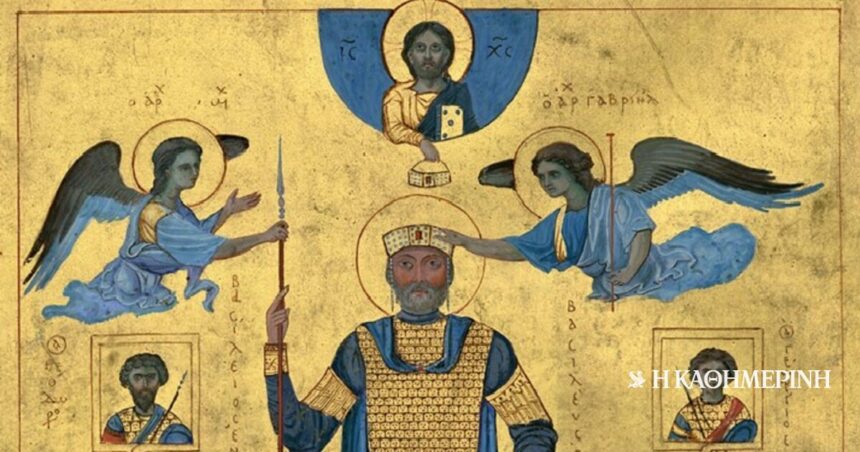Undoubtedly one of the most important Roman emperors was Basil II, a ruler who led the Byzantine state to its greatest glory after the time of Justinian I. He was born in 958 in the Holy Palace, seat of imperial power, in Constantinople. His father was Constantine VII Porphyry’s son, Romanus II, who managed the fortunes of the empire from 959 until his early death in 963. At the time of Romanus’ death, Basil and his younger brother Constantine were minors, which made it impossible to assume their duties as co-emperors. Power was assumed from 963 to 969 by Nikephoros II Phokas and then until 976 by John I Tzimiskis.
The death of Tzimiski, in January 976, coincided with the coming of age of Basil II. In the first ten years or so of its beginning, Vasilios was faced with the attempt by members of the aristocracy to undermine the central authority of the emperor. Only in 985 was he freed from the eunuch Basilio Lekapinos, illegitimate son of Romanos I, who held a high position in the palace. A few years later, in 989, he subdued the last centers of internal danger, Varda Phokas and Varda Scleros.
Dealing with the Bulgarians became one of the main objectives of the Kingdom.
The beginning of Basil II was marred by the wars he waged against the Bulgarians under the “comitopoulos” Samuel. Samuel had established a Bulgarian state centered on Ahrida, a region from which he would launch various raids on Roman lands. His purpose was the expansion of his state towards Thessaloniki and the southern Balkans. In 986 his troops besieged Larissa, sacked and plundered it. Basil II’s response was to organize campaign against Sardinia (Sofias), which however ended in failure, due to the distraction of the imperial troops in submission and the rebellions of Scleros and Phocas.
Dealing with the Bulgarians became one of Basilio’s main goals in the following years, when his authority was no longer contested. While he carried out a series of campaigns in the East against the Arabs, managing to expand the state’s borders even further, he always had his attention focused on developments in the Balkan Peninsula. In 997 the Bulgarians suffered a painful defeat at battle of the Sperchios river by the forces of the Byzantine general Nikephoros Uranos, from which Samuel and his son Romanos barely managed to escape wounded.
Wishing to punish the Bulgarians, Basil ordered the captives to be blinded, leaving one one-eyed for every hundred men.
In July 1014 the Bulgarians suffered their second major defeat at the hands of Basil’s troops at battle of the Key. The Bulgarian prisoners taken by the Roman troops are estimated at about ten thousand. Wishing to punish the Bulgarians for their apostasy, Basil ordered the captives to be blinded, leaving one one-eyed for every hundred blind men. It was about one particularly harsh punishment even by the standards of that time, but which is regarded by some writers as an act of leniency, as the usual punishment for apostasy then was death. Samuel died shortly after the battle of the Key. Basil’s war against the Bulgarians ended in 1018 with their submission to imperial authority.
Apart from the wars, Basil II was known in history for his great work in favor of the weak of the empirewho were subject to the economic pressure of the powerful in the countryside. He imposed the fiscal measure “solidarity”, which benefited the small landowners, but provoked the anger of the large landowners.
Decades later, many reminisced about the time of Basil II, who a few centuries after his death was called Bulgarokdonos.
The last years of his life were devoted to the recovery of the prestige of the empire in the West. In 1025 he was even designing the carrying out one campaign to retake Sicily. His plans, however, were thwarted by his death on December 15, 1025, exactly 999 years ago.
At the time of Basil II’s death, the empire was at its height. The external dangers of the state had been successfully met, the frontiers had been greatly extended, the internal enemies had been exterminated, and the coffers of the state were full.. Many were those who reminisced decades later about the time of Basil II, who a few centuries after his death was called the Bulgarian killer.
Column Editor: Myrto Katsigera, Vassilis Minakakis, Antigoni-Despina Poimenidou, Athanasios Syroplakis




